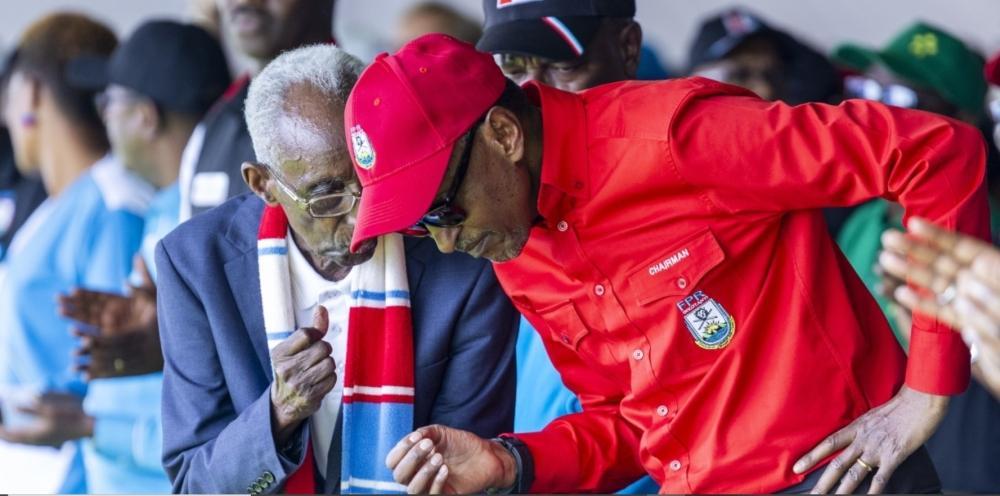Amani Athar
Africa-Press – Rwanda. Twenty-five years ago, on April 17, 2000, Paul Kagame was elected President of the Republic of Rwanda by a joint session of Parliament and Cabinet following the resignation of President Pasteur Bizimungu on March 23. Kagame, who had been Acting President since March 24, received 81 out of 86 votes in a process broadcast live on radio and television.
He was officially sworn in on April 22, 2000. Three years later, in Rwanda’s first general elections, Kagame was elected president with 95.05 percent of the vote. He was re-elected in 2010 with 93 percent, in 2017 with 98.8 percent, and in 2024 with a striking 99.18 percent of the vote.
Critics have questioned these consistently high margins, claiming they reflect dominance more than competition. But this article explores a less examined dimension—one that may explain Kagame’s enduring leadership: the influence of his ancestry.
A legacy beyond politics
President Kagame’s lineage, particularly his ties to Rwanda’s royal heritage, appears to have deeply shaped his leadership philosophy, from his military career in the Rwandan Patriotic Army to his presidency. His identity is rooted in a legacy of responsibility, strength, and nationhood passed down through generations.
Psychologists like Sigmund Freud emphasized how ancestral influence—through genetics, cultural traditions, and family narratives—can profoundly shape an individual. Understanding Kagame’s family history provides a compelling context for the man he has become.
Kagame’s paternal and maternal heritage is steeped in the traditions of Rwanda’s royal and military history. On his father’s side, his lineage includes queen mothers and military leaders who commanded battalions such as Inkotanyi and Abasoni—names long associated with the defense of Rwanda’s sovereignty.
His paternal great-grandfather, Elder Rwakagara, led two battalions. His sons—Kabare, Nyamushanja, Ruhinankiko, Cyigenza, and Giharamagara—continued the tradition, commanding various military units with names like Indinda, Uruyange, Abadaraza, Injyamubiri, and others.
On his mother’s side, Kagame is a direct descendant of King Kigeli III Ndabarasa (1786 – 1796), one of Rwanda’s greatest kings. His mother, Asterie Bisinda Rutagambwa, traces her lineage through a succession of royal ancestors including Bugingo, Mbabariye, Mushikazi, Semugaza, and King Kigeli III Ndabarasa. King Yuhi V Musinga, a key figure in Rwanda’s pre-colonial history, was the paternal uncle of Kagame’s mother.
Given this noble ancestry, Kagame’s rise to the presidency might not have been mere coincidence but rather a continuation of leadership ingrained in his lineage.
Leadership in context
This ancestral backdrop sets Kagame apart from his predecessors. President Juvenal Habyarimana, though Rwandan, had immediate family ties in Uganda during his presidency. Gregoire Kayibanda reportedly had Congolese roots, with some identifying him as either Mushi or Mutetela. Theodore Sindikubwabo’s origins remain obscure, known mostly for his role during the 1994 Genocide against the Tutsi.
In contrast, Kagame’s family history is intimately connected with Rwanda’s past and present. This deep sense of national belonging may explain his singular focus on unity, stability, and national development.
Visionary leadership rooted in responsibility
In the book Rwanda, Inc., authors Patricia Crisafulli and Andrea Redmond portray Kagame more as a CEO than a traditional political leader—focused on efficiency, growth, and long-term impact. This comparison reflects his governance style: detail-oriented, vision-driven, and results-focused.
Kagame has often emphasised the importance of unity. Speaking to RPF cadres sometime back, he said, “Individuals will come and go, but the family will always remain.” While he referred to the RPF, the message extended to all Rwandans—an inclusive national “family” he has strived to unify under the Ndi Umunyarwanda identity.
This philosophy seeks to dismantle the ethnic divisions that once tore Rwanda apart, replacing them with a shared sense of national pride and collective destiny.
Beyond ethnic lines
While researchers like Marijke Verpoorten of the University of Antwerp have suggested that Kagame’s leadership is partly driven by a commitment to protect the Tutsi minority post-genocide, his actions point toward a broader ambition: building a secure, inclusive society for all Rwandans.
Indeed, Ndi Umunyarwanda is not just a campaign slogan; it is a blueprint for nation-building—a rejection of labels like Tutsi and Hutu in favor of a unified Rwandan identity.
Some wonder what will happen after Kagame. He himself has acknowledged the inevitability of transition: “Individuals will come and go, but the family will always remain.” The emphasis is on building systems and values that outlast individuals—a Rwanda where unity, progress, and accountability continue to thrive.
President Kagame’s journey—from refugee to soldier to head of state—cannot be divorced from the legacy of his forebears. He walks in the footsteps of warrior kings and visionary leaders who believed in Rwanda’s potential. And like them, he seems driven by a sense of duty larger than self.
As he continues to lead, perhaps the most fitting prayer is that of Apostle Paul: “I have fought the good fight, I have finished the race, I have kept the faith.”
Source: The New Times
For More News And Analysis About Rwanda Follow Africa-Press






